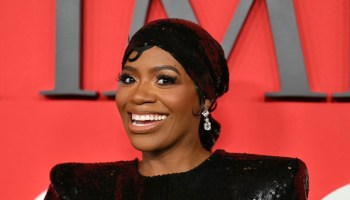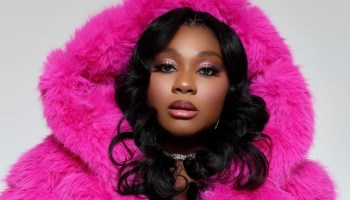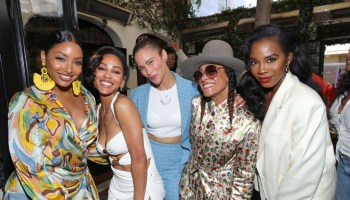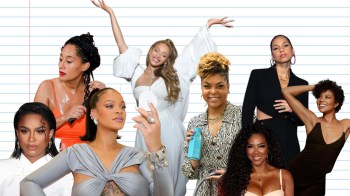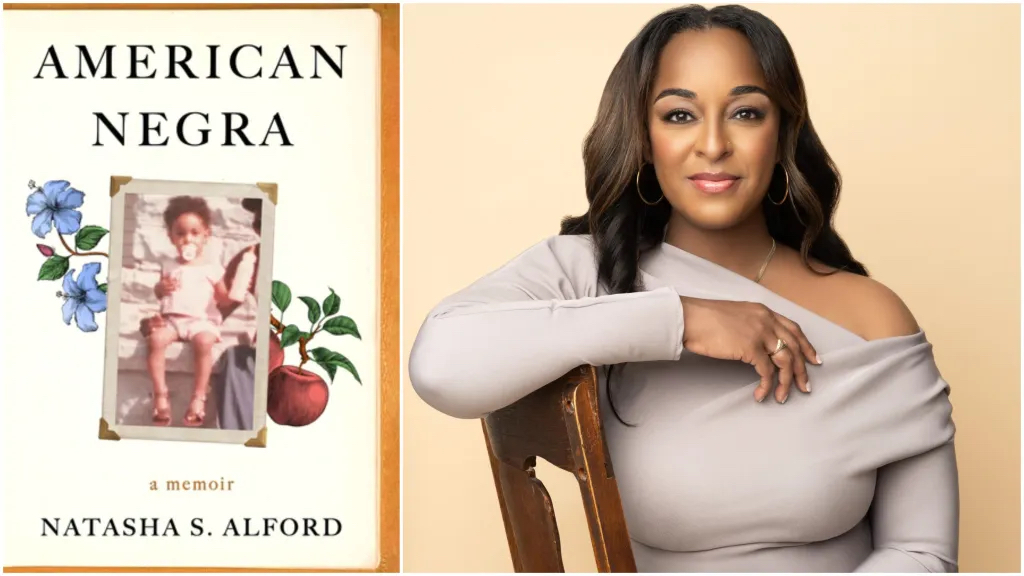
Source: Beowulf Sheehan for Harper Collins / Beowulf Sheehan for Harper Collins
Natasha S. Alford crafted an encouraging coming-of-age tale that the media was missing during her upbringing in American Negra.
The memoir walks readers through her ambitious childhood in upstate New York. She chases the American Dream as she rubs up against conflicting ideas about ethnicity, femininity, identity, and purpose. Typical tales of the American Dream usually center on young white men, but Alford’s story is about a young Afro-Latina girl from a loving and supportive family. Facing the restrictions of a biased power structure, Alford works her way to the top of the media industry with her community behind her. She is currently the Vice President of Digital Content at The Grio.
American Dreaming
It is one of the few examples of the American Dream that centers on an Afro-Latina voice. “There’s just not enough stories that acknowledge our existence,” she told HelloBeautiful. “I had to write something that would let those women be seen, those girls be seen.”
Her perspective is unique but relatable. It recalls Tara Westover’s Educated and Danielle Prescod’s Token Black Girl.
Alford grew up when terms like Afro-Latina were not widely used, and girls who existed at the intersection of two cultures couldn’t quickly find solidarity on TikTok.
She loves that today’s American Negras have each other and that they continue to share loving relationships with the Black girls around them the way she did. “We are each other’s people,” she told HelloBeautiful. “When you’re an Afro-Latina, you sometimes are treated like an outsider within your own culture, and so really your safe place is with other Black people, right? Regardless of your ethnic differences. And that rings so true for me, and I think that’s why so many Afro-Latinos sort of get adopted into the African-American community.”
The memoir explores how girls like Alford arrived in a world of language barriers and historical gaps. In one section, she refers to her classmates as various versions of herself had her circumstances been different.
Being Lifted While Climbing
American Negra does more than allow the reader to follow Alford’s journey, leaping over clumsy stereotypes and striving for perfection. It highlights the systems and role models that allowed her to achieve greatness. Readers visit the woman who curled her hair, taught her which fork to select, and helped plan her quinceanera.
Some shy away from revealing the extent of their full support system, but Alford proudly shares hers. “This book, in many ways, is a thank you letter,” said Alford. “It was so important for me to show people that.”
She intentionally recognizes the community that hoisted her dreams on their shoulders. Alford knows that highlighting their contributions does not detract from her efforts. The goal is to inspire others to help today’s children. “I’m here because people cared, and therefore, we have to do the same for the young people around us,” said Alford. “There are so many people who think that they have what they have because of merit, not recognizing their own privilege, not recognizing the ways in which other people are already setting them up for success.”
“There’s too many young people who are seen as disposable by society. And there’s so much talent that we lose out on because we’re not intervening,” Alford continued.
On Giving Back
Alford wanted to attend Howard University but ended up at a prominent PWI instead because they offered a larger aid package. “That decision was made out of financial necessity,” she recalled.
No attempts were made to bridge the gap because it was assumed that HBCUs couldn’t compete.
Her pivot was an example of the “brain drain” that plagues Black communities and institutions. “We all lose out. When we don’t invest in this talent,” she said. Alford was advised to avoid building a career in Black media due to outdated attitudes that assumed assimilation would lead to safety.
Recent events have proven that so-called mainstream outlets are not insulated from business challenges.
“We need to change the conversation about how we talk about these decisions,” she said. “There were people who tried to dissuade me or sort of downplay the importance of Black media, and they looked like me.”
Making Room For More Stories
American Negra is a motivational text intended to make people question the limitations placed on them.
As a leader at The Grio, Alford is determined to pour into young professionals the way her words do. After telling her own story, her focus is pointing “outward.”
“If we’re going to tell people there is an American dream, we need to actually make sure there’s a path to achieve and to realize that,” she said.
Alford plans to use her position at The Grio and her position as a media heavyweight to tell more stories like her own. “I want America to see us, not as marginal.”
American Negra is now available where books are sold.
DON’T MISS:











